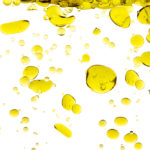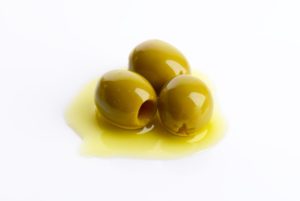 One of the effects of the olive oil shortage due to the disease affecting groves throughout Europe is expected to be a rise in price in quality olive oil. Understandably, this will make people more likely to want to opt for cheaper brands of oil to save a buck or two here and there. But is it really worth it?
One of the effects of the olive oil shortage due to the disease affecting groves throughout Europe is expected to be a rise in price in quality olive oil. Understandably, this will make people more likely to want to opt for cheaper brands of oil to save a buck or two here and there. But is it really worth it?
According to an expert chef from Greece, your money is still better spent on the higher quality oil every time. That chef, Christine Cushing, has been producing olive oil from trees in Greece for the past decade. She says that if you see extra virgin olive oil on sale at suspiciously low prices, you should simply pass it up.
According to her, good olive oil has never been and never will be considered “cheap” because of the methods used to produce it. The extra attention given to high-quality extra virgin olive oil results in a purer product and a significantly better taste. The first pressing for these oils never involves chemicals or heat, and the second pressing also refrains from using high temperatures.
The more you press the olives, the less oil will eventually come out. To maximize the amount of oil they get, lesser brands will use extremely high temperatures to  extract every little drop possible. But the worst enemies to olive oil are light, heat and air, so the lower quality oils being sold for lower prices compromise the quality of the oil to get more efficiency out of each fruit. This isn’t necessarily bad, it just means that you can’t really consider it to be the same quality as true extra virgin oils that have followed all of the appropriate practices and avoided using heat compression.
extract every little drop possible. But the worst enemies to olive oil are light, heat and air, so the lower quality oils being sold for lower prices compromise the quality of the oil to get more efficiency out of each fruit. This isn’t necessarily bad, it just means that you can’t really consider it to be the same quality as true extra virgin oils that have followed all of the appropriate practices and avoided using heat compression.
Cushing says that if you’re looking for the health benefits of the best extra virgin olive oil, a couple extra dollars goes a long way toward ensuring quality.
The olive oil we sell at My Olive Tree is guaranteed extra virgin oil of impeccable quality. For more information about how we produce it, contact us today.
Our Mission
Our mission is to create a partnership between the Evangelical community and the nation of Israel; this partnership will produce employment, income, and revenue for humanitarian aid projects in Israel. We envision the planting of one-million olive trees over the next seven years. This relationship was prophesied in the Bible centuries ago, that the foreigners and strangers (those not of Jewish descent) would help rebuild the walls of Israel and cause the desert to bloom (Isa 35:1). Among other things, this reforestation is an environmental blessing for the entire region. May all who participate in this project be blessed body, soul and spirit; it is time for you to take root in Israel!








